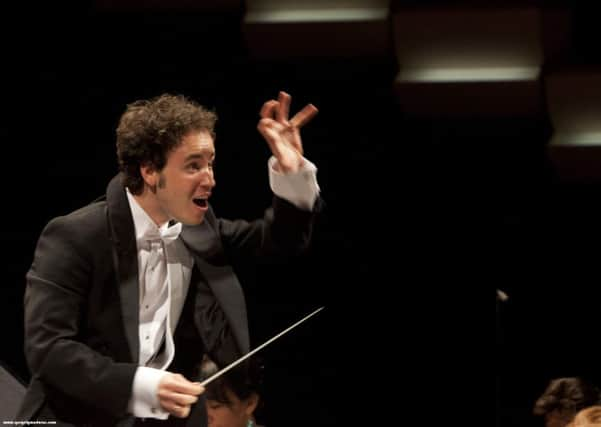Music review: BBC SSO


City Halls, Glasgow ***
He opened with a work that would have been new to most of his audience, Erno Dohnányi’s Violin Concerto No 1 – a substantial four-movement late-Romantic virtuoso showcase. Framed at either end by a dark, rich brass theme of post-Wagnerian signature, the inner mood is mostly wild and effervescent, a swashbuckling tour de force that requires a soloist who fears nothing.
There was certainly complete self-belief in violinist Barnabás Kelemen’s big-hearted performance. He powered his way relentlessly through the music, digging venomously into the myriad spread chords, fearless of the music’s dazzling challenges. But there was something roughshod, too, in the inconsistency of his tone and some questionable intonation. A kind of accident-prone bravado.
Advertisement
Hide AdThe second half was considerably more refined. Madaras drew every ounce of gypsy passion and rustic nuance from Kodaly’s Dances of Galánta, a work defined by its infectious rhythmic kicks, characterising wind solos and a blistering sense of Magyar zeal.
The concert ended with Borodin’s Symphony No 2, one of those delicious Russian works that connect the folksy lyricism of Tchaikovsky with the ravishing expansive density of Rachmaninov. This was a beefy performance, feisty and intrepid, but tempered beautifully by the textural sensitivity of Borodin’s melting colourations.
KEN WALTON